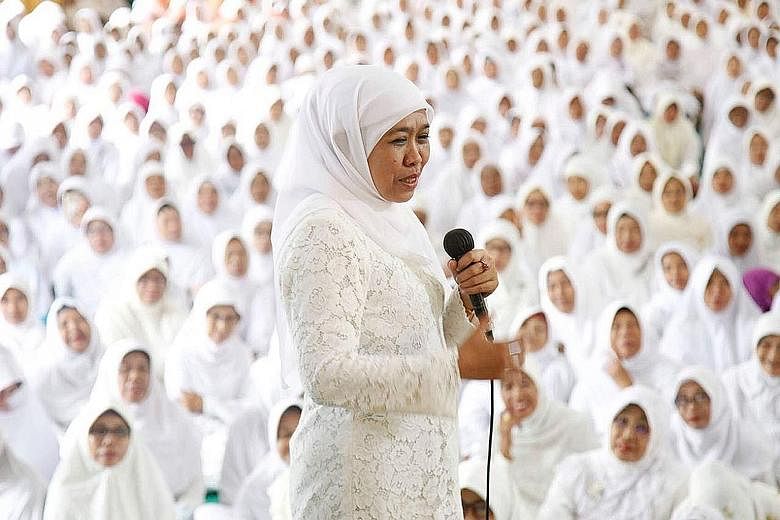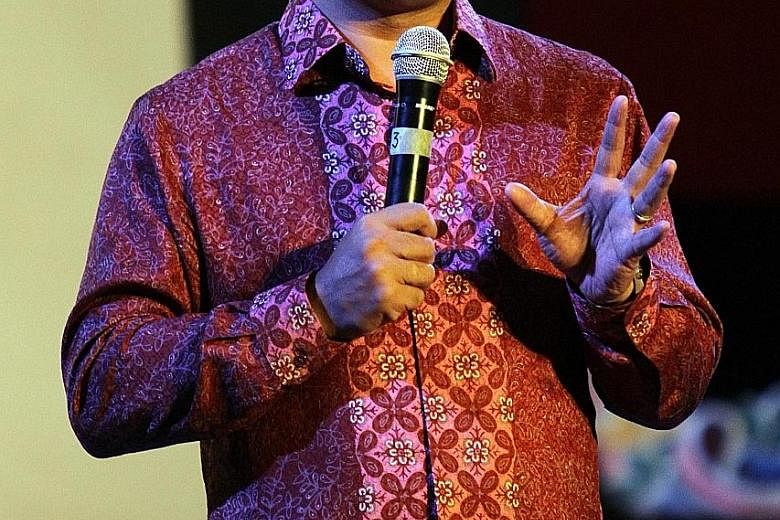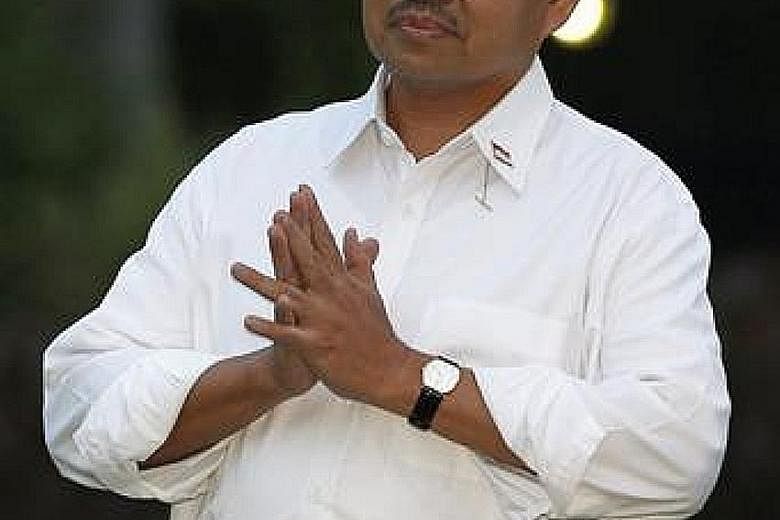Voters in Indonesia will be taking part in regional polls on Wednesday to elect provincial governors, mayors and local parliamentarians.
The latest round of such elections will see over 152 million voters, or three-fourths of the electorate, casting their ballots in 17 provinces, 39 cities and 115 regencies.
Much attention will be focused on the races on the island of Java, the most populous in the sprawling archipelago, with results there seen as a bellwether for the presidential election next year.
Observers say a number of the contests in Java are proxy battles between President Joko Widodo, who is widely expected to seek re-election, and his most likely opponent next year, former general Prabowo Subianto, who lost in the 2014 presidential election.
In West Java province, popular Bandung mayor Ridwan Kamil, an ally of the President, is up against Mr Sudrajat, a close campaign aide to Mr Prabowo.
In Central Java, incumbent governor Ganjar Pranowo, a senior ruling Indonesian Democratic Party of Struggle (PDI-P) cadre, is in a two-way race with Mr Sudirman Said, a candidate fielded by the main opposition Gerindra party, which was founded by Mr Prabowo.
Mr Sudirman served as energy minister for two years before being sacked by Mr Joko in 2016 for not implementing executive decisions.
-
Island's rich history
-
Java island's 130,000 sq km is about the size of England and, with more than 140 million people, is home to more than half of Indonesia's total population of 261 million.
Much of Indonesian history is traced to Java, once the centre of Hindu-Buddhist empires for hundreds of years. The Chinese and Arabs were among the earliest to spread Islam in Java and established Islamic sultanates, but the strong Hindu influence has always remained.
Many names in Java come from Sanskrit, such as Purwakarta, a regency in West Java province. "Purva" means early in Sanskrit, and "karta'" means prosperous and flourishing in the old Javanese language.
Java is also where Indonesia's struggle for independence from the Dutch during the 1930s and 1940s took place.
The island, where capital city Jakarta is located, dominates the country politically, economically and culturally.
Under Indonesia's transmigration programme during former president Suharto's rule, Java residents were moved permanently to less densely populated regions like Kalimantan, Sumatra and Sulawesi. While the aim was to reduce poverty and overpopulation on Java, the policy made the Javanese the most well-networked group in Indonesia.
Wahyudi Soeriaatmadja
Meanwhile, a two-way race in East Java province highlights the tensions between the President, who is popularly called Jokowi, and his political patron, PDI-P chairman Megawati Sukarnoputri.
The candidate favoured by Ms Megawati, Mr Saifullah Yusuf, is taking on Ms Khofifah Indar Parawansa, a Jokowi ally who recently quit as social affairs minister to run for the East Java governor post.
Both candidates are prominent figures of Nahdlatul Ulama, Indonesia's largest Islamic organisation.
Mr Joko's quiet support for Ms Khofifah was among the key issues brought up by Ms Megawati when she met the President in Bali earlier this year.
The PDI-P chief has publicly criticised the government and reminded the President that he was just "a party officer" within the PDI-P rank and file.
The President's awkward relationship with his patron is evident in another race in West Java.
The pair of candidates favoured by President Joko, Mr Ridwan and Tasikmalaya regent Uu Ruzhanul Ulum, is competing against PDI-P senior cadre Tubagus Hasanuddin and police general Anton Charliyan, who are fielded by Ms Megawati .
West Java is the most populous of the three provinces on the island, followed by East and Central Java. Together, they account for 89 million voters or just over half of those casting their ballots in the Wednesday elections.
"The Java battles plus that of North Sumatra and South Sulawesi would represent Indonesia on a smaller scale," Professor Maswadi Rauf of the University of Indonesia told The Straits Times.
North Sumatra and South Sulawesi are the most populous provinces outside of Java.
Indonesia's previous round of regional polls last year included the election for the Jakarta governor, which was widely seen as the most divisive in the country, with religion turned into a hot-button issue by Muslim hardliners and intolerant groups who staged mass rallies against the then incumbent Basuki Tjahaja Purnama. Basuki, a Christian-Chinese politician who took over from Mr Joko in the capital after he became president, lost the bid to be re-elected. He was also eventually convicted of blasphemy, in a controversial court ruling, and sentenced to two years in jail.
The issue of religion has so far been much more muted although in January, while campaigning in West Java, Mr Ridwan had to fend off allegations that he was a Shi'ite Muslim, a minority group in
Indonesia. The allegations had first surfaced in March last year.
"As a mayor, I received non-Muslims to meet me as guests (in the office). Would that make me non-Muslim? I received Shi'ite Muslims as well as other groups. As a fair leader, I have to receive everyone from any group with an open heart," he said in January. He added that his grandfather was a Nahdlatul Ulama cleric.
On how the polls on Wednesday would impact next year's presidential election, Prof Maswadi said winning candidates this week would obviously help campaign for their backers next year.
Political parties with the most number of winning candidates would certainly receive a boost in confidence as well as added grassroots support.
"There are still a lot of undecided voters, the swing voters, and they tend to vote for the candidates from the winning teams. It's in their psychology," Prof Maswadi said.



